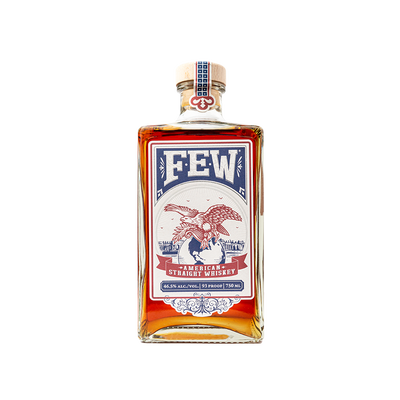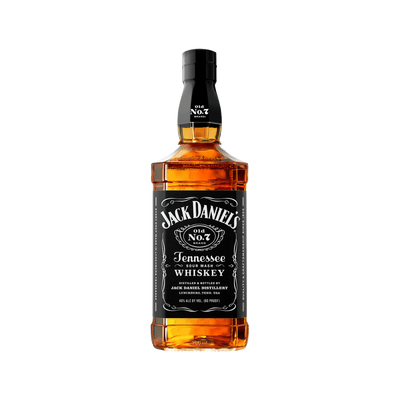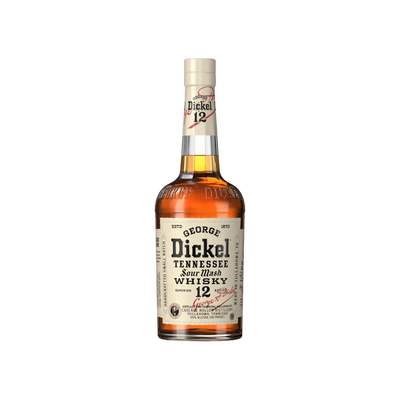Tennessee Whiskey
What is Tennessee Whiskey?
Tennessee Whiskey is a distinctive type of Other Whiskey that follows the same mash bill requirements as bourbon but undergoes an additional filtration step called the Lincoln County Process. This process involves slowly filtering the new-make spirit through sugar maple charcoal before it goes into barrels for aging, which mellows the whiskey and gives it a characteristic smoothness. The combination of this charcoal filtering, along with the requirement that it be produced in Tennessee, creates a whiskey category that's legally separate from bourbon despite sharing many similarities.
Learn More About Tennessee Whiskey
What makes Tennessee Whiskey unique?
Tennessee Whiskey distinguishes itself through the Lincoln County Process, where the distilled spirit gets filtered through sugar maple charcoal before aging, imparting a distinctively smooth character that sets it apart from bourbon and other American whiskeys. This charcoal mellowing step removes harsh compounds and adds subtle sweetness, creating a cleaner, rounder flavor profile. While Tennessee Whiskey must meet the same mash bill and aging requirements as bourbon, that extra filtration step gives brands like Jack Daniel's and George Dickel their signature approachable taste that's become synonymous with American whiskey worldwide.
How is Tennessee Whiskey made?
Tennessee whiskey starts with the same mash bill requirements as bourbon—at least 51% corn—and follows identical distillation and aging rules in new charred oak barrels. The defining difference comes after distillation but before barreling: Tennessee whiskey must go through the Lincoln County Process, where the new-make spirit slowly filters through several feet of sugar maple charcoal. This charcoal mellowing step removes harsh compounds and adds a distinctive smoothness that sets Tennessee whiskey apart from its Kentucky cousin.
How do you drink Tennessee Whiskey?
Tennessee whiskey shines brightest when sipped neat or over a single large ice cube, allowing you to appreciate its signature smoothness that comes from the Lincoln County Process charcoal filtering. While purists love it straight, this approachable spirit also makes fantastic cocktails – think whiskey sours, Old Fashioneds, and Lynchburg Lemonades that showcase its mellow character without overwhelming it. Tennessee whiskey works beautifully year-round, but it really comes alive during autumn evenings by the fire, summer barbecues, and any time you want a whiskey that's friendly enough for newcomers but complex enough to keep seasoned drinkers happy.
How do I choose good Tennessee Whiskey?
Start by considering the mashbill – high-rye Tennessee whiskeys like Jack Daniel's Single Barrel Rye bring spicier notes perfect for cocktails that need backbone, while wheated options offer smoother, sweeter profiles ideal for sipping neat. If you're mixing cocktails, grab a bottled-in-bond expression or something around 100 proof since the extra strength won't get lost behind citrus and bitters, but for neat drinking, standard 80-86 proof bottles let you appreciate the Lincoln County Process's signature smoothness without overwhelming heat. Always check the age statement when available – younger Tennessee whiskeys work great in highballs and punches, while older expressions deserve spots in spirit-forward drinks like Old Fashioneds where their complexity can shine.
Nutritional Information
Typical Calorie Range per Ounce: 64-70 calories
Typical Carbohydrate Range per Ounce: 0-0.1 grams
Typical Sugar Range per Ounce: 0 grams
Typically Gluten Free: Yes
Tennessee whiskey goes through distillation and aging processes that remove gluten proteins, making it generally safe for those with gluten sensitivities. The distillation process effectively eliminates gluten even though the mash bill contains wheat or other gluten-containing grains. That said, always check the specific product information and consult with the manufacturer if you have celiac disease or severe gluten intolerance, as production methods can vary between distilleries.
The calorie content comes entirely from alcohol since Tennessee whiskey contains no carbohydrates, sugars, or fats. At 80 proof (40% alcohol by volume), you're looking at roughly 64 calories per ounce, while higher proof expressions will push that number closer to 70 calories per ounce.
Scrolled this far? Your reward? Tennessee Whiskey trivia!
- Tennessee whiskey must pass through sugar maple charcoal before aging, but here's the kicker – most distilleries burn their own maple trees on-site to make this charcoal. Jack Daniel's alone burns about 140 cords of hard sugar maple annually, creating charcoal that filters their whiskey drop by drop through 10-foot vats packed with chunks the size of your fist.
- The famous "Lincoln County Process" that defines Tennessee whiskey was actually invented in 1825 by Alfred Eaton in – you guessed it – Lincoln County, Tennessee. But here's the twist: neither Jack Daniel's nor George Dickel (the two biggest Tennessee whiskey brands) are made in Lincoln County today. Jack Daniel's moved to Moore County, while Dickel operates in Coffee County.
- Tennessee whiskey distilleries rely on iron-free water that naturally flows through limestone caves. This limestone-filtered water is so pure and mineral-balanced that it requires zero treatment before use – no chemicals, no additives, nothing. The same cave springs that Native Americans used centuries ago still supply major distilleries today.
- Unlike bourbon, Tennessee whiskey can legally be made anywhere in Tennessee, but the state requires the mash bill to contain at least 51% corn and mandates the Lincoln County Process. What's wild? You could theoretically make "Tennessee whiskey" in Kentucky if you followed Tennessee's rules, but nobody's tried that legal loophole yet.
- The charcoal mellowing process removes compounds that would normally give whiskey bite and heat, but it also strips away some flavors entirely. Master distillers compensate by deliberately over-proofing their whiskey before filtration, knowing the charcoal will mellow it down to exactly where they want it. It's like seasoning your food extra-heavy before cooking, anticipating what will be lost in the process.
Higher-proof spirits can be intense. Mix carefully, taste thoughtfully, and enjoy responsibly.
Gift message (optional)



